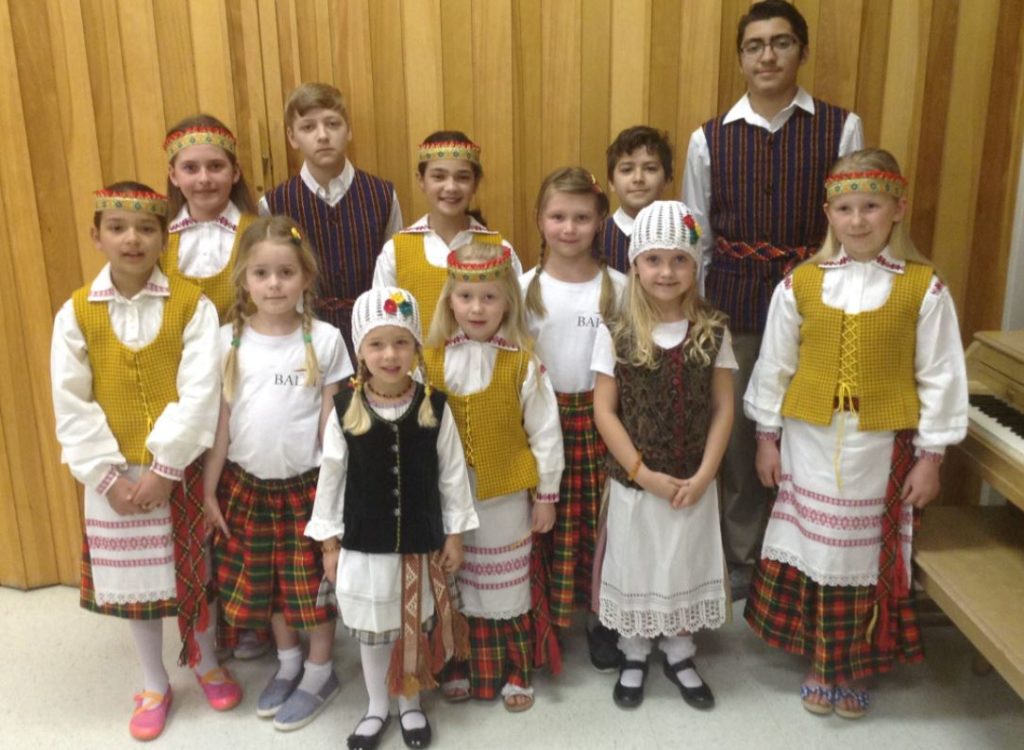
Part I – Language Retention in the Diaspora
According to UNESCO, in 80 years more than half of the 6,000 languages and dialects spoken in the world today will disappear. A year ago, 2,465 languages were listed in the red book of endangered languages. Lithuanian is not in that list, but its usage is in decline, primarily due to a decrease in population. And it is likely to disappear in the third or fourth generation of the diaspora.
Linguists at Vilnius University have been conducting research since 2011 to determine levels of language retention among Lithuanian emigrants. In the first year, internet questionnaires were completed by over 2,000 respondents, supplemented with 177 in-depth interviews conducted during visits to Chicago and Los Angeles in the US, Munich and Hanover in Germany. Language behaviour patterns were also derived from interviews (about 170) in historically large Lithuanian communities in the diaspora such as Buenos Aires, Toronto, London and Oslo.
As we know, various generations of emigrants live in various countries. Argentinian emigration dates back to the first interwar Lithuanian Independence period. In Norway, emigrants are relatively recent. In Canada and USA, there are several different emigrant groups, or waves, present at the same time. Language retention depends on the reason for emigration, the arrival country’s policy regarding immigrant languages, social attitudes, and the immigrants’ stance and relationship to their community and to their country of origin. The most crucial factor in language retention is the passing of language to the next generation. If the children of immigrants decide to speak to their own children in Lithuanian, retention can be achieved.

Language retention in the diaspora does not occur naturally. First of all, an immigrant must have the desire to instill the language in his or her family and make a continuous, extended effort in this regard. It requires strength to follow up on such a decision without second-guessing. A parent must ask – why did I decide to speak to my child in Lithuanian, why is it important to me? The reasons may be many: not losing contact with the country of origin, having and knowing one’s roots. Some may not even consider speaking to their children in any other language.
Research reveals that first-generation emigrants who left their country by themselves or with their parents do not lose their Lithuanian language. It is a given, learned from parents, used at school and at work in Lithuania, and the first language for 90% of them.
Diminishing of the language did not occur in those who had emigrated over 5 years ago, as some researchers expected. Emigrants who left even 20 or more years ago speak like native Lithuanians. However, with time, a slight accent may develop, less-often-used words may be forgotten, expressing thoughts may be more difficult. This is more likely in “mixed” families and in those who assimilated well in their new, non-Lithuanian communities. Younger people or anyone who left their country to study noted in their questionnaires that it would be more difficult for them to speak about professional topics, because in their country of residence, their work language is the local language (with English as the lingua franca even if they are not in an anglophone country).

For children growing up in the diaspora, who are the second generation, language retention is highly influenced by parents and relatives. Lithuanian was the first language learned by 84% of adult survey participants, with the remainder choosing not to speak to their children in Lithuanian. However once those children begin kindergarten or primary school, they quickly learn the local language and bring it home, with a quickly growing vocabulary which enables them to speak more freely than in Lithuanian. This then takes second place or its use becomes restricted to home life.
 The third generation, grandchildren of emigrants from Lithuania, were born and raised in the US, Canada, South America, the United Kingdom and elsewhere. Only 34% of respondents in this category learned Lithuanian as their first language. Naturally, they find it more difficult to express their thoughts in Lithuanian, and they have a stronger accent. At least one or both parents of this generation were born outside of Lithuania. Usually this is a mixed family, and both parents speak the local language, so that Lithuanian was not the only language spoken at home. It was primarily used in the Lithuanian community, at church, then at home and, most rarely, with friends.
The third generation, grandchildren of emigrants from Lithuania, were born and raised in the US, Canada, South America, the United Kingdom and elsewhere. Only 34% of respondents in this category learned Lithuanian as their first language. Naturally, they find it more difficult to express their thoughts in Lithuanian, and they have a stronger accent. At least one or both parents of this generation were born outside of Lithuania. Usually this is a mixed family, and both parents speak the local language, so that Lithuanian was not the only language spoken at home. It was primarily used in the Lithuanian community, at church, then at home and, most rarely, with friends.
In 1999, a survey by US sociolinguists Richard Alba, John Logan, Amy Lutz and Brian Stults confirmed that among immigrants in the US second and further generations inevitably transitioned from their parents’ and grandparents’ languages to the local language. Research by the authors of this article showed the same results.
Next time: Language and Identity
From the Vilnius University project “Lithuanian Language in the Diaspora: Learning, Usage, Decline” (headed by Prof. M. Ramonienė). Text by Dr. Eglė Gudavičienė, Dr. Inga Hilbig, Dr. Kristina Jakaitė-Bulbukienė
Published in Bernardinai.lt



























